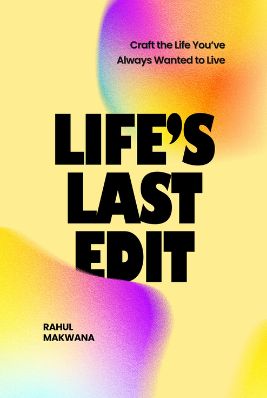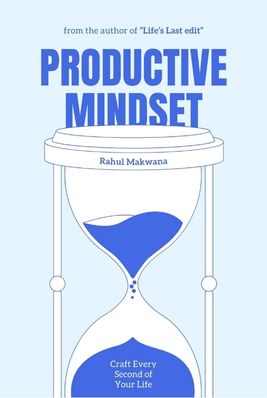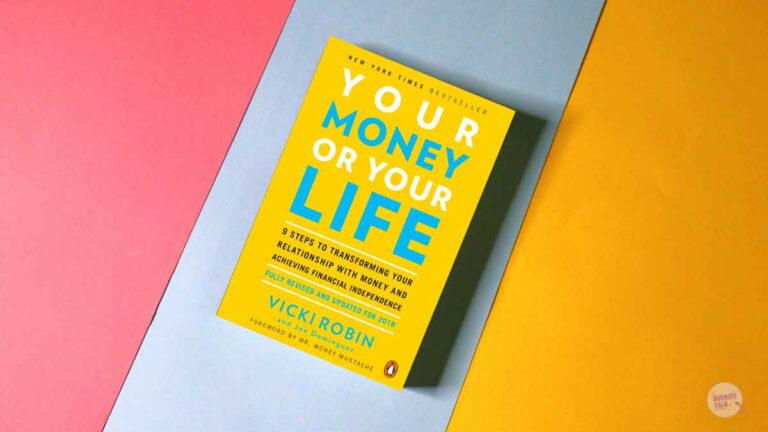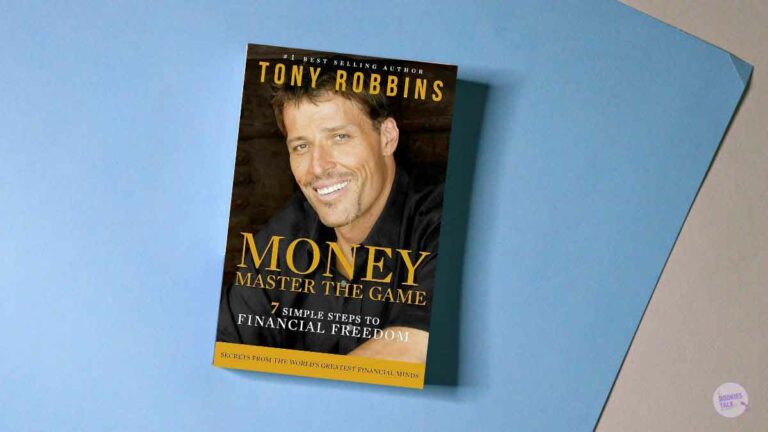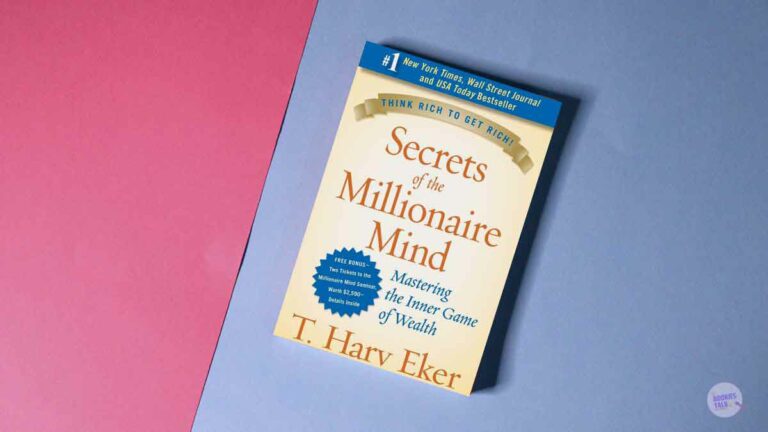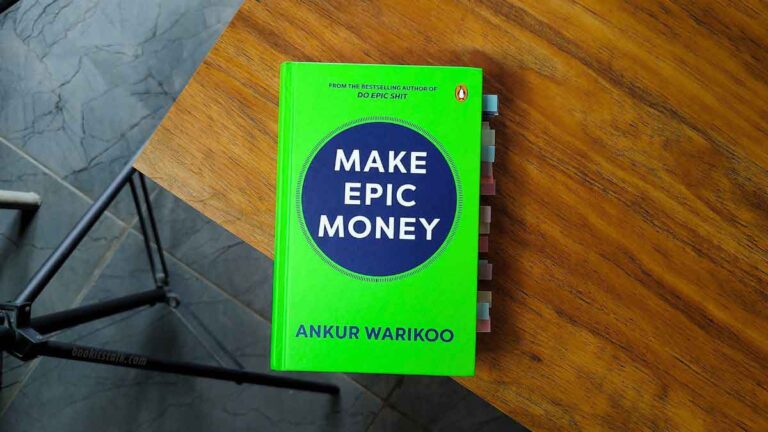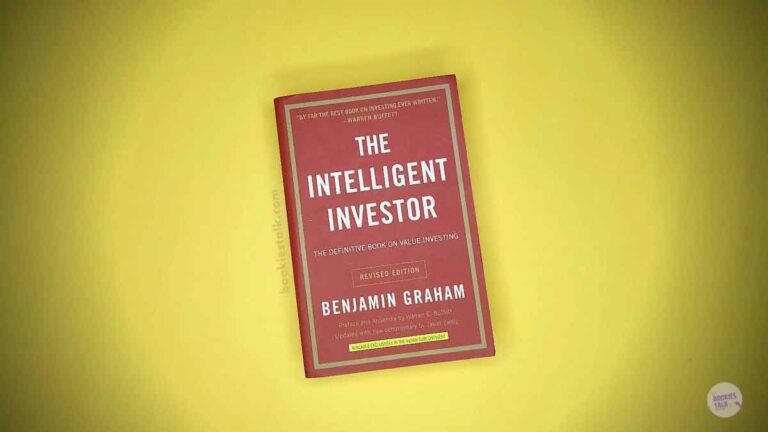Same as Ever Summary by Morgan Housel
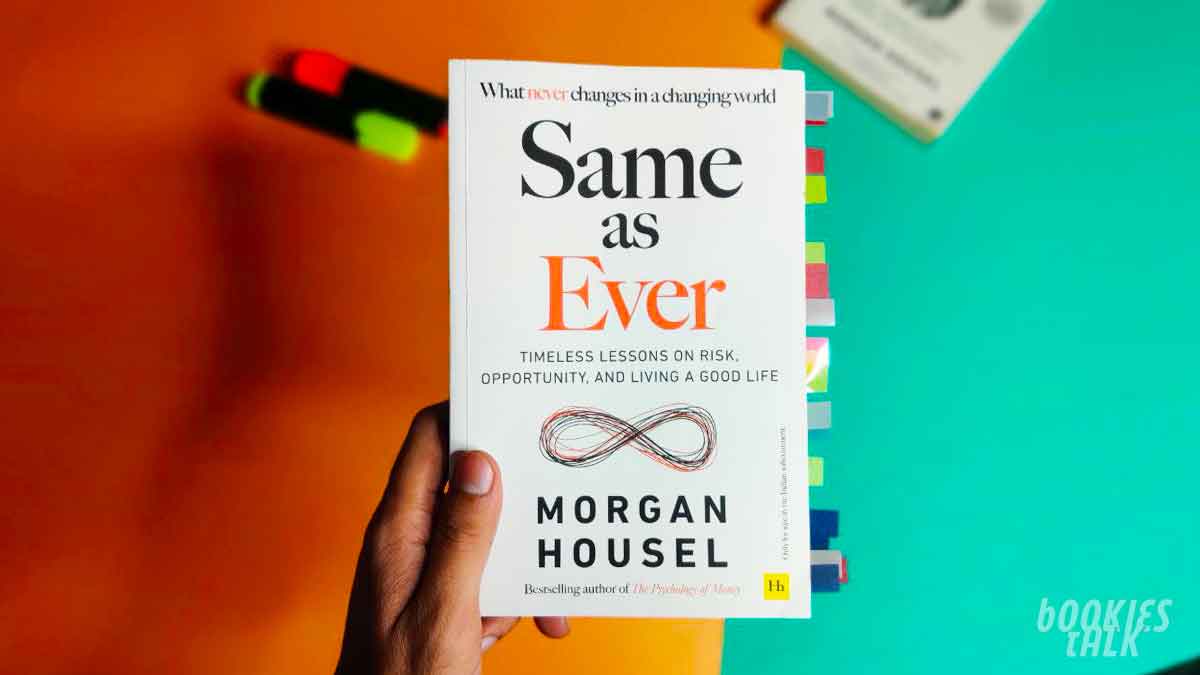
Morgan Housel has shared 23 life-changing stories with five common themes: Greed, Risk, Opportunity, Fear, and Jealousy. He says, over the years, the stock market has gone up and down and we’ve seen world wars, but the things that have stayed the Same as Ever are Greed, Risk, Opportunity, Fear, and Jealousy.
Same as Ever by Morgan Housel is a personal finance book, but it also talks about how people around the world behave when they face any sort of discomfort.
Enter your email address To join the newsletter. I will be with you every Sunday at 9:00 AM (IST). See you on Sundays.
Book in Five Sentences
- Events will come and go but the Greed, Risk, Opportunity, Fear, and Jealousy will never change.
- Innovation is not an effort of one person or company, it’s the contribution of thousands of people who have worked in the past and working in the present.
- Thinking about the past and future won’t change anything for anyone including yourself, so stay in the present and only see what kind of mistakes other people have made and don’t repeat the same.
- Be yourself because that’s the only true thing that you have that is real.
- The data you see about the company is just a number. So see the real picture otherwise, you will be with those people who run after Profit and Loss.
Same as Ever Summary
Morgan Housel says it’s impossible to predict the future, but we can observe how people will behave when faced with discomfort and experience good things in life.
He says,
“The biggest risk and the most important news story of the next ten years will be something nobody is talking about today. No matter what year you’re reading this, that truth will remain. I can say that confidently because it’s always been true. The fact that you can’t see it coming is exactly what makes it risky.”
The simple takeaway here is that no one knows what will happen in the future. So, stop worrying about what’s to come and focus on the present, while working on the process.
Now to make it simple for you, here is one paragraph from the book.
“Predicting what the world will look like fifty years from now is impossible. But predicting that people will still respond to greed, fear, opportunity, exploitation, risk, uncertainty, tribal affiliations, and social persuasion in the same way is a bet I’d take.”
(Note: The PDF is not an actual book but a collection of valuable lessons.)
Forget the Event and Focus on Behavior
Everyone thought the 2008 financial crisis would be the last, but then came COVID-19 in 2019. Events like these come and go, and while we might face a recession in the future, no one knows exactly when.
But one thing is certain: we all know how people will react in such times.
This is because people have experienced a recession and the Great Depression. During a recession, some will invest heavily, while others will be more cautious, afraid of what might happen next.
As Morgan Housel writes in the book:
“It’s why the generation who lived through the Great Depression never viewed money the same afterward. They saved more money, took on less debt, and were wary of risk for the rest of their lives.”
Experience plays a huge role in shaping behavior. Those who have lived through tough times use that experience to predict what might come next.
So, rather than worrying about specific events, focus on how you and the people around you behave. If you can control how you respond, you’ll be better equipped to handle whatever comes your way.
I’ll leave you with one final quote from the book:
“It’s uncomfortable to think that what you haven’t experienced might change what you believe because it’s admitting your own ignorance. It’s much easier to assume that those who disagree with you aren’t thinking as hard as you are.”
Truth About Innovation
People often feel that we haven’t seen huge innovation in the past decade and that everything seems the same, but that’s not true at all.
In Chapter 17, The Wonders of the Future, the author shares a story about Thomas Edison that highlights this point.
Many people believe Edison invented the light bulb, but that’s not entirely accurate. In 1802, a British inventor named Humphry Davy created an electric light called an arc lamp using charcoal rods as a filament.
The problem with this invention was that it was incredibly bright—so bright you could nearly go blind looking at it—and it would burn out quickly, so it was rarely used.
What Edison did was moderate the brightness and increase the longevity of the light bulb, making it practical for everyday use.
This story shows that just because we may not see visible innovation right in front of us, that doesn’t mean nothing is happening. People all over the world are working on projects, and when the time is right, the results will emerge.
No one knows how the work of someone from 100 years ago could become useful today. At the end of the day, innovation isn’t just about one person or one company—it’s the collective contribution of thousands who have tried, tested, and refined ideas over time.
It’s all About Time
As Baseball player Dan Quisenberry once said, “The future is much like the present, only longer.”
When you say, “I’m thinking about the long term, I know in the short run, things won’t look good, but when the time comes, everything will look better,”
There’s nothing wrong with having a long-term plan. However, blindly following that plan can be a problem.
There are certain things that will remain constant—whether it’s in your life, the business you’re running, the job you’re doing, or even how your boss behaves.
Your job is to observe and identify what stays the same and focus your energy on adapting to the things that need to change.
For example:
- Permanent information: “How do people behave when they encounter a risk they hadn’t anticipated?”
- Expiring information: “How much profit did Microsoft earn in the second quarter of 2005?”
Expiring information tells you what happened in the past, while permanent information explains why something happened and why it’s likely to happen again. Permanent information is like a loop—some things will always stay the same.
So, rather than constantly focusing on the future and past, why not focus on the present and accept reality as it is? By doing this, you’ll be able to adjust your approach when necessary while staying grounded in what truly matters.
Be like Yourself
You’ve probably heard the phrase, “Never meet your hero,” and there’s a reason behind it. When you admire someone, you create a mental image of them based on the qualities you idealize.
However, if you meet them and they don’t live up to your expectations or have flaws that you didn’t anticipate, it can change your perception forever.
As the author points out:
- Steve Jobs was a genius but could also be a difficult, demanding boss.
- Walt Disney’s relentless ambition drove every company he touched to the edge of bankruptcy.
The lesson here is that you can’t just cherry-pick the positive traits of someone you admire, like Steve Jobs, and ignore the negative aspects. True growth comes from embracing both the strengths and weaknesses of those you admire.
Naval Ravikant once wrote:
“One day, I realized with all these people I was jealous of, I couldn’t just choose little aspects of their lives.
I couldn’t say I want his body, I want her money, I want his personality. You have to be that person.
Do you want to actually be that person with all of their reactions, their desires, their family, their happiness level, their outlook on life, their self-image?
If you’re not willing to do a wholesale, 24/7, 100 percent swap with who that person is, then there is no point in being jealous.”
Either you want someone else’s life, or you don’t. Both choices are equally powerful. The key is knowing which one you’re aiming for when choosing role models.
Rather than trying to become someone else, focus on being yourself. And if you do look up to someone, study their mistakes instead of their successes. Learn from what they did wrong, so you don’t repeat the same missteps.
True Meaning of Same as Ever
Things will come and go, but the only constant that remains the same is the present.
The meaning of Same as Ever is about observing what stays unchanged—whether it’s how humans behave in difficult times or when they’re happy.
Related: 15 Must-Read Books in Life
When the next recession comes, the people who haven’t experienced one will behave the same as those who have seen the last one.
Events will repeat, but when? No one knows. However, how people will behave during those moments is well-documented, and that’s what stays the same, always.
Favorite Quotes From Same as Ever Quotes
“In 1,000 parallel universes, you want to be wealthy in 999 of them. You don’t want to be wealthy in the fifty of them where you got lucky, so we want to factor luck out of it…I want to live in a way that if my life played out 1,000 times, Naval is successful 999 times.”
“People like to say, “To know where we’re going, you have to know where we’ve been.” But more realistic is admitting that if you know where we’ve been, you realize we have no idea where we’re going. Events compound in unfathomable ways.”
“The biggest risk is always what no one sees coming because if no one sees it coming, no one’s prepared for it; and if no one’s prepared for it, its damage will be amplified when it arrives”
“The core here is that people think they want an accurate view of the future, but what they really crave is certainty.”
“A management style that works brilliantly at a ten-person company can destroy a thousand-person company, which is a hard lesson to learn when some companies grow that fast in a few short years.”
“People tend to have short memories. Most of the time they can forget about bad experiences and fail to heed lessons previously learned. But hard-core stress leaves a scar.”
Same As Ever Review
This is going to be a fun review!
Same as Ever: A Guide to What Never Changes by Morgan Housel isn’t written for every reader. It’s mostly for new readers who have only read a few personal finance books, excluding The Psychology of Money.
The book contains a lot of stories, which is great, but sometimes the author abruptly ends a story and starts a new one in the next paragraph. It’s like you’re hearing a tale, and just when things get interesting, the author switches to a completely different story.
Imagine telling someone the Mahabharata, and right after Arjun marries Draupadi, you suddenly switch to the Ramayana. It feels jarring, right?
I felt the book was too fast. Maybe this was intentional, but it didn’t work well for me. Because of this, I felt disconnected from the book, but I pushed through because I wanted to write this review.
If you’re someone who’s new to personal finance, this book could be a good read for you. However, if you’re already familiar with the basics, you can probably skip it. If you’re a fan of Morgan Housel’s writing, it might still be worth giving it a try.
In short, it’s a great book for new readers, but not so much for everyone else.
Buy Same As Ever:
Love What You Read, You Might Like These too…
By the way, we also have a WhatsApp Channel! If you love reading, this is the perfect place for you to join—and the best part? It’s completely FREE!

